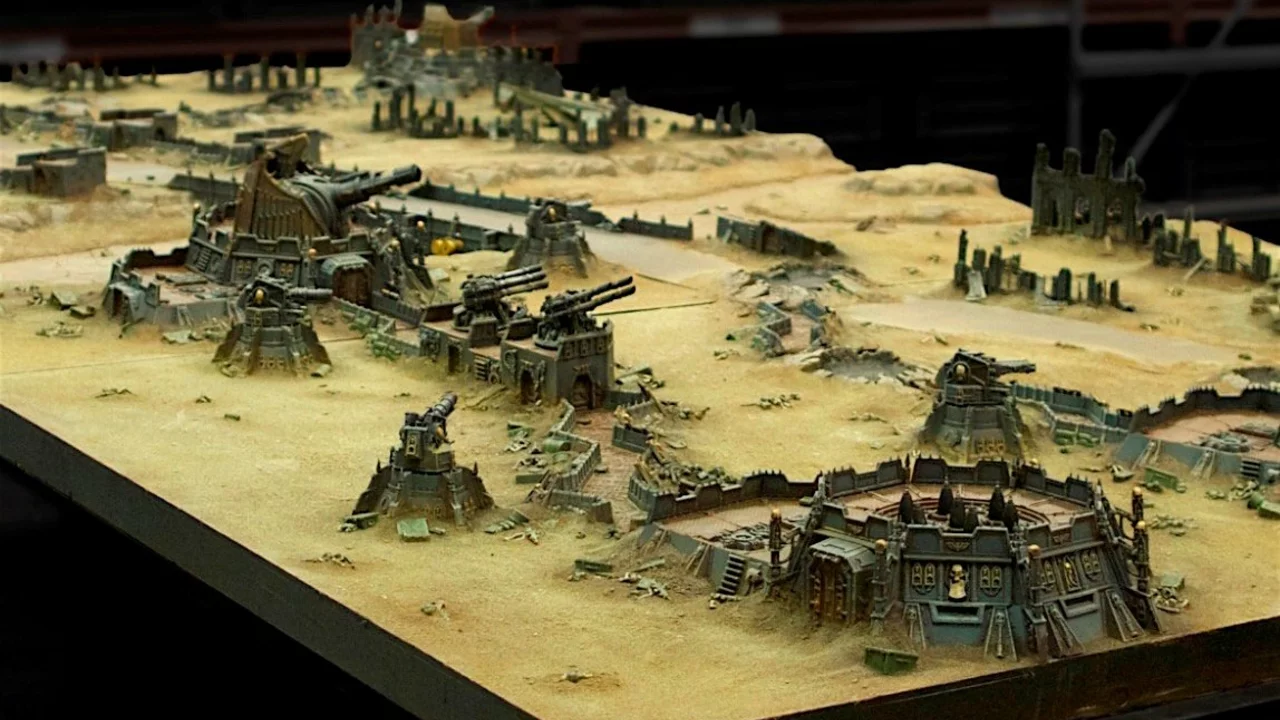The Genesis of Warhammer
The story of Warhammer begins in the early 1980s, in the United Kingdom. A small company named Games Workshop, at the time known primarily for distributing American role-playing games, decided to branch out and create their own game. The game was designed by Rick Priestley, who was inspired by the tabletop wargames he had played as a child. He wanted to create a game that was both fun and easy to play, but also deep and strategic. The result was Warhammer, a tabletop wargame that combined elements of fantasy, science fiction, and historical warfare.
Introducing the Warhammer Universe
When you play Warhammer, you are not just playing a game. You are immersing yourself in a rich and detailed universe. The Warhammer universe is a dark and gritty fantasy world, filled with powerful heroes, terrifying monsters, and epic battles. The lore of Warhammer is incredibly detailed, with histories, mythologies, and cultures for each of its many factions. This depth and detail is one of the things that sets Warhammer apart from other tabletop games.
The Game Mechanics of Warhammer
One of the key elements of Warhammer's success is its innovative game mechanics. The game is played using miniature models, which are used to represent troops and units on the battlefield. These models are moved around a tabletop battlefield, which is often decorated with terrain features such as hills, forests, and buildings. The game is turn-based, with players taking turns to move their units, attack their enemies, and perform other actions.
The Art of Warhammer Miniature Painting
Part of the appeal of Warhammer is the hobby aspect. The miniatures used in the game are highly detailed and can be painted to represent the different factions in the Warhammer universe. Painting these miniatures is a hobby in itself, with many players spending hours painting their models to a high standard. This aspect of the game allows players to express their creativity and add a personal touch to their armies.
Warhammer's Transition into Video Games
Warhammer has not just been a success on the tabletop. The franchise has also made a successful transition into the world of video games. There have been numerous Warhammer video games released over the years, spanning a variety of genres. These games have allowed players to experience the Warhammer universe in a new way, and have helped to introduce the franchise to a wider audience.
The Impact of Warhammer on Popular Culture
Warhammer's influence extends beyond just the world of tabletop gaming and video games. The franchise has had a significant impact on popular culture. It has inspired numerous novels, comics, and even a movie. It has also influenced other games and franchises, with many elements of the Warhammer universe becoming common tropes in the fantasy genre.
Warhammer 40,000: The Darker Future
Warhammer is not just a single game, but a franchise with multiple iterations. One of these is Warhammer 40,000, a version of the game set in a dark and dystopian future. Warhammer 40,000, often referred to as Warhammer 40k, has become just as popular as the original game, if not more so. It shares many of the same mechanics and themes as Warhammer, but with a sci-fi twist.
The Magic of Warhammer Age of Sigmar
Another popular iteration of Warhammer is Warhammer Age of Sigmar. This game is set in a completely different universe from the original Warhammer, one filled with magic and gods. It features a more streamlined set of rules, making it easier for new players to get into the game. Despite its differences, Age of Sigmar still retains the core elements that make Warhammer so beloved.
The Future of Warhammer
Warhammer has been around for over 35 years, and it shows no signs of slowing down. Games Workshop continues to release new models, rules, and lore for the game. There are also new video games and novels being released regularly. The future of Warhammer looks bright, with the franchise continuing to grow and evolve.
Why Warhammer Remains Popular
There are many reasons why Warhammer has remained popular for so long. The depth and detail of the universe, the innovative game mechanics, the hobby aspect of painting miniatures, the successful transition into video games, and the impact on popular culture all contribute to its enduring appeal. But perhaps the most important reason is the community. Warhammer has a dedicated and passionate fanbase, who not only play the game, but contribute to its lore and culture. This community is a big part of what makes Warhammer more than just a game; it's a hobby, a passion, and for many, a way of life.
